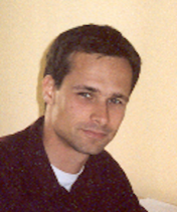 Thomas Friemel, Institute of Mass Communication and Media Research, University of Zurich “Impersonal Knowledge Networks of Public Opinion” Friday, May 14, 2010 presentation (audio and slides).
Thomas Friemel, Institute of Mass Communication and Media Research, University of Zurich “Impersonal Knowledge Networks of Public Opinion” Friday, May 14, 2010 presentation (audio and slides).
The concept of impersonal knowledge networks proposes a new approach for the study of political knowledge and public opinion. Factual knowledge questions and the analysis of simple frequency distributions provide only limited insights into the complex structures and dynamics of how people think and decide on political issues. The concept of impersonal knowledge networks proposes to understand public opinion as a network of topic related aspects. Free word associations of individuals are used as the basis to aggregate bigger knowledge networks. This aggregation is possible by transforming the two-mode network of respondents and their answers to a one mode network of topic aspects. Data presented in this talk were collected in representative CATI interviews on three different national referendum campaigns in Switzerland. The panel design allows not only to describe the knowledge structure at a given time point but also to analyze the dynamics of the structure.
Thomas N. Friemel is an Assistant Professor at the Institute of Mass Communication and Media Research at the University of Zurich (IPMZ) and currently Visiting Scholar at the Annenberg School for Communication at the University of Pennsylvania. He is the organizer of the annual conference on Applications of Social Network Analysis (ASNA) at the University of Zurich and ETH Zurich and applies SNA in various ways in mass communication research.
[line]
Impersonal Knowledge Networks of Public Opinion
[line]


